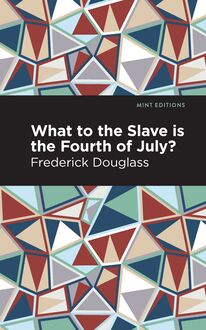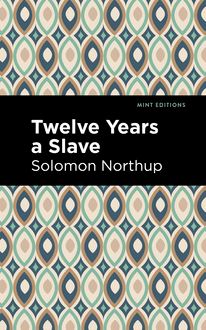-
 Univers
Univers
-
 Ebooks
Ebooks
-
 Livres audio
Livres audio
-
 Presse
Presse
-
 Podcasts
Podcasts
-
 BD
BD
-
 Documents
Documents
-
- Cours
- Révisions
- Ressources pédagogiques
- Sciences de l’éducation
- Manuels scolaires
- Langues
- Travaux de classe
- Annales de BEP
- Etudes supérieures
- Maternelle et primaire
- Fiches de lecture
- Orientation scolaire
- Méthodologie
- Corrigés de devoir
- Annales d’examens et concours
- Annales du bac
- Annales du brevet
- Rapports de stage
La lecture à portée de main
Vous pourrez modifier la taille du texte de cet ouvrage
Découvre YouScribe en t'inscrivant gratuitement
Je m'inscrisDécouvre YouScribe en t'inscrivant gratuitement
Je m'inscrisEn savoir plus
Vous pourrez modifier la taille du texte de cet ouvrage
En savoir plus

Description
Iola Leroy, or Shadows Uplifted (1892) is a novel by Frances Ellen Watkins Harper. One of the first novels published by an African American woman, Iola Leroy, or Shadows Uplifted is a story of liberation set during the American Civil War that deals with such themes as abolition, miscegenation, and passing.
In North Carolina, a Union Army regiment welcomes a group of escaped slaves into its midst. Led by Robert Johnson and Tom Anderson, the fugitives appeal to the Union commander on behalf of a woman named Iola Leroy, who remains enslaved in town. Leroy, despite being born free, was forced into slavery due to her mixed racial heritage. Her father Eugene, a wealthy slaveowner, set Iola’s mother free in order to marry her and start a family. When he died from a sudden bout of yellow fever, Eugene unwittingly left his family in grave danger, and Marie and her children were soon torn from freedom by Eugene’s spiteful relatives. Although Iola had been sent North to study at a seminary, she is tricked into returning to the South and sold away from her family. Having told her story, Johnson and Anderson join up with the Union commander and his regiment to fight for Iola’s freedom. Iola Leroy, or Shadows Uplifted, which inspired Zora Neale Hurston and Ida B. Wells, is a groundbreaking work of African American fiction and a definitive masterpiece from a pioneer in her craft.
With a beautifully designed cover and professionally typeset manuscript, this edition of Frances Ellen Watkins Harper’s Iola Leroy, or Shadows Uplifted is a classic of African American literature reimagined for modern readers.
Sujets
Informations
| Publié par | Mint Editions |
| Date de parution | 26 janvier 2021 |
| Nombre de lectures | 0 |
| EAN13 | 9781513276724 |
| Langue | English |
| Poids de l'ouvrage | 1 Mo |
Informations légales : prix de location à la page 0,0500€. Cette information est donnée uniquement à titre indicatif conformément à la législation en vigueur.
Extrait
Shadows Uplifted
Frances Ellen Watkins Harper
Shadows Uplifted was first published in 1892.
This edition published by Mint Editions 2021.
ISBN 9781513271729 | E-ISBN 9781513276724
Published by Mint Editions®
minteditionbooks.com
Publishing Director: Jennifer Newens
Design & Production: Rachel Lopez Metzger
Project Manager: Micaela Clark
Typesetting: Westchester Publishing Services
C ONTENTS I. M YSTERY OF M ARKET S PEECH AND P RAYER -M EETING II. C ONTRABAND OF W AR III. U NCLE D ANIEL ’ S S TORY IV. A RRIVAL OF THE U NION A RMY V. T HE R ELEASE OF I OLA L EROY VI. R OBERT J OHNSON ’ S P ROMOTION AND R ELIGION VII. T OM A NDERSON ’ S D EATH VIII. T HE M YSTIFIED D OCTOR IX. E UGENE L EROY AND A LFRED L ORRAINE X. S HADOWS IN THE H OME XI. T HE P LAGUE AND THE L AW XII. S CHOOL - GIRL N OTIONS XIII. A R EJECTED S UITOR XIV. H ARRY L EROY XV. R OBERT AND HIS C OMPANY XVI. A FTER THE B ATTLE XVII. F LAMES IN THE S CHOOL -R OOM XVIII. S EARCHING FOR L OST O NES XIX. S TRIKING C ONTRASTS XX. A R EVELATION XXI. A H OME FOR M OTHER XXII. F URTHER L IFTING OF THE V EIL XXIII. D ELIGHTFUL R EUNIONS XXIV. N ORTHERN E XPERIENCE XXV. A N O LD F RIEND XXVI. O PEN Q UESTIONS XXVII. D IVERGING P ATHS XXVIII. D R . L ATROBE ’ S M ISTAKE XXIX. V ISITORS FROM THE S OUTH XXX. F RIENDS IN C OUNCIL XXXI. D AWNING A FFECTIONS XXXII. W OOING AND W EDDING XXXIII. C ONCLUSION
I
M YSTERY OF M ARKET S PEECH AND P RAYER -M EETING
“ G ood mornin’, Bob; how’s butter dis mornin’?”
“Fresh; just as fresh, as fresh can be.”
“Oh, glory!” said the questioner, whom we shall call Thomas Anderson, although he was known among his acquaintances as Marster Anderson’s Tom.
His informant regarding the condition of the market was Robert Johnson, who had been separated from his mother in his childhood and reared by his mistress as a favorite slave. She had fondled him as a pet animal, and even taught him to read. Notwithstanding their relation as mistress and slave, they had strong personal likings for each other.
Tom Anderson was the servant of a wealthy planter, who lived in the city of C——, North Carolina. This planter was quite advanced in life, but in his earlier days he had spent much of his time in talking politics in his State and National capitals in winter, and in visiting pleasure resorts and watering places in summer. His plantations were left to the care of overseers who, in their turn, employed negro drivers to aid them in the work of cultivation and discipline. But as the infirmities of age were pressing upon him he had withdrawn from active life, and given the management of his affairs into the hands of his sons. As Robert Johnson and Thomas Anderson passed homeward from the market, having bought provisions for their respective homes, they seemed to be very light-hearted and careless, chatting and joking with each other; but every now and then, after looking furtively around, one would drop into the ears of the other some news of the battle then raging between the North and South which, like two great millstones, were grinding slavery to powder.
As they passed along, they were met by another servant, who said in hurried tones, but with a glad accent in his voice:—
“Did you see de fish in de market dis mornin’? Oh, but dey war splendid, jis’ as fresh, as fresh kin be.”
“That’s the ticket,” said Robert, as a broad smile overspread his face. “I’ll see you later.”
“Good mornin’, boys,” said another servant on his way to market. “How’s eggs dis mornin’?”
“Fust rate, fust rate,” said Tom Anderson. “Bob’s got it down fine.”
“I thought so; mighty long faces at de pos’-office dis mornin’; but I’d better move ’long,” and with a bright smile lighting up his face he passed on with a quickened tread.
There seemed to be an unusual interest manifested by these men in the state of the produce market, and a unanimous report of its good condition. Surely there was nothing in the primeness of the butter or the freshness of the eggs to change careless looking faces into such expressions of gratification, or to light dull eyes with such gladness. What did it mean?
During the dark days of the Rebellion, when the bondman was turning his eyes to the American flag, and learning to hail it as an ensign of deliverance, some of the shrewder slaves, coming in contact with their masters and overhearing their conversations, invented a phraseology to convey in the most unsuspected manner news to each other from the battle-field. Fragile women and helpless children were left on the plantations while their natural protectors were at the front, and yet these bondmen refrained from violence. Freedom was coming in the wake of the Union army, and while numbers deserted to join their forces, others remained at home, slept in their cabins by night and attended to their work by day; but under this apparently careless exterior there was an undercurrent of thought which escaped the cognizance of their masters. In conveying tidings of the war, if they wished to announce a victory of the Union army, they said the butter was fresh, or that the fish and eggs were in good condition. If defeat befell them, then the butter and other produce were rancid or stale.
Entering his home, Robert set his basket down. In one arm he held a bundle of papers which he had obtained from the train to sell to the boarders, who were all anxious to hear from the seat of battle. He slipped one copy out and, looking cautiously around, said to Linda, the cook, in a low voice:—
“Splendid news in the papers. Secesh routed. Yankees whipped ’em out of their boots. Papers full of it. I tell you the eggs and the butter’s mighty fresh this morning.”
“Oh, sho, chile,” said Linda, “I can’t read de newspapers, but ole Missus’ face is newspaper nuff for me. I looks at her ebery mornin’ wen she comes inter dis kitchen. Ef her face is long an’ she walks kine o’ droopy den I thinks things is gwine wrong for dem. But ef she comes out yere looking mighty pleased, an’ larffin all ober her face, an’ steppin’ so frisky, den I knows de Secesh is gittin’ de bes’ ob de Yankees. Robby, honey, does you really b’lieve for good and righty dat dem Yankees is got horns?”
“Of course not.”
“Well, I yered so.”
“Well, you heard a mighty big whopper.”
“Anyhow, Bobby, things goes mighty contrary in dis house. Ole Miss is in de parlor prayin’ for de Secesh to gain de day, and we’s prayin’ in de cabins and kitchens for de Yankees to get de bes’ ob it. But wasn’t Miss Nancy glad wen dem Yankees run’d away at Bull’s Run. It was nuffin but Bull’s Run an’ run away Yankees. How she did larff and skip ’bout de house. An’ den me thinks to myself you’d better not holler till you gits out ob de woods. I specs ’fore dem Yankees gits froo you’ll be larffin tother side ob your mouf. While you was gone to market ole Miss com’d out yere, her face looking as long as my arm, tellin’ us all ’bout de war and saying dem Yankees whipped our folks all to pieces. And she was ’fraid dey’d all be down yere soon. I thought they couldn’t come too soon for we. But I didn’t tell her so.”
“No, I don’t expect you did.”
“No, I didn’t; ef you buys me for a fool you loses your money shore. She said when dey com’d down yere she wanted all de men to hide, for dey’d kill all de men, but dey wouldn’t tech de women.”
“It’s no such thing. She’s put it all wrong. Why them Yankees are our best friends.”
“Dat’s jis’ what I thinks. Ole Miss was jis’ tryin to skeer a body. An’ when she war done she jis’ set down and sniffled an’ cried, an’ I war so glad I didn’t know what to do. But I had to hole in. An’ I made out I war orful sorry. An’ Jinny said, ‘O Miss Nancy, I hope dey won’t come yere.’ An’ she said, ‘I’se jis’ ’fraid dey will come down yere and gobble up eberything dey can lay dere hands on.’ An’ she jis’ looked as ef her heart war mos’ broke, an’ den she went inter de house. An’ when she war gone, we jis’ broke loose. Jake turned somersets, and said he warnt ’fraid ob dem Yankees; he know’d which side his brad was buttered on. Dat Jake is a cuter. When he goes down ter git de letters he cuts up all kines ob shines and capers. An’ to look at him skylarking dere while de folks is waitin’ for dere letters, an’ talkin’ bout de war, yer wouldn’t think dat boy had a thimbleful of sense. But Jake’s listenin’ all de time wid his eyes and his mouf wide open, an’ ketchin’ eberything he kin, an’ a heap ob news he gits dat way. As to Jinny, she jis’ capered and danced all ober de flore. An’ I jis’ had to put my han’ ober her mouf to keep ole Miss from yereing her. Oh, but we did hab a good time. Boy, yer oughter been yere.”
“And, Aunt Linda, what did you do?”
“Oh, honey, I war jis’ ready to crack my sides larffin, jis’ to see what a long face Jinny puts on wen ole Miss is talkin’, an’ den to see dat face wen missus’ back is turned, why it’s good as a circus. It’s nuff to make a horse larff.”
“Why, Aunt Linda, you never saw a circus?”
“No, but I’se hearn tell ob dem, and I thinks dey mus’ be mighty funny. An’ I know it’s orful funny to see how straight Jinny’s face looks wen she’s almos’ ready to bust, while ole Miss is frettin’ and fumin’ ’bout dem Yankees an’ de war. But, somehow, Robby, I ralely b’lieves dat we cullud folks is mixed up in dis fight. I seed it all in a vision. An’ soon as dey fired on dat fort, Uncle Dan’el says to me: ‘Linda, we’s gwine to git our freedom.’ An’ I says: ’Wat makes you think so?” An’ he says: ‘Dey’ve fired on Fort Sumter, an’ de Norf is boun’ to whip.’”
“I hope so,” said Robert. “I think that we have a heap of friends up there.”
“Well, I’m jis’ gwine to keep on prayin’ an’ b’lievin’.”
Just then the bell rang, and Robert, answering, found Mrs. Johnson suffering from a severe headache, which he thought was occasioned by her worrying over the late defeat of the Confederates. She sent him on an errand, which he executed with his usual dispatch, and returned to some work which he had to do in the kitc
-
 Univers
Univers
-
 Ebooks
Ebooks
-
 Livres audio
Livres audio
-
 Presse
Presse
-
 Podcasts
Podcasts
-
 BD
BD
-
 Documents
Documents
-
Jeunesse
-
Littérature
-
Ressources professionnelles
-
Santé et bien-être
-
Savoirs
-
Education
-
Loisirs et hobbies
-
Art, musique et cinéma
-
Actualité et débat de société
-
Jeunesse
-
Littérature
-
Ressources professionnelles
-
Santé et bien-être
-
Savoirs
-
Education
-
Loisirs et hobbies
-
Art, musique et cinéma
-
Actualité et débat de société
-
Actualités
-
Lifestyle
-
Presse jeunesse
-
Presse professionnelle
-
Pratique
-
Presse sportive
-
Presse internationale
-
Culture & Médias
-
Action et Aventures
-
Science-fiction et Fantasy
-
Société
-
Jeunesse
-
Littérature
-
Ressources professionnelles
-
Santé et bien-être
-
Savoirs
-
Education
-
Loisirs et hobbies
-
Art, musique et cinéma
-
Actualité et débat de société
- Cours
- Révisions
- Ressources pédagogiques
- Sciences de l’éducation
- Manuels scolaires
- Langues
- Travaux de classe
- Annales de BEP
- Etudes supérieures
- Maternelle et primaire
- Fiches de lecture
- Orientation scolaire
- Méthodologie
- Corrigés de devoir
- Annales d’examens et concours
- Annales du bac
- Annales du brevet
- Rapports de stage




















